CFGRP Overview
The Cooperative Forest Genetics Research Program (CFGRP), founded in 1953, includes the University of Florida, IFAS, School of Forest Resources and Conservation, forest industrial and state agencies as cooperators. Our mission is to develop genetically-improved varieties of southern pines for our cooperative members. We also provide technical assistance, research support and educational resources needed to make sound genetic decisions for management of timberlands. Through faster growth and greater disease resistance, new improved varieties of slash pine can yield 40-55% more usable wood at harvest than unimproved varieties.
In the CFGRP, the University of Florida personnel provide strategic planning, technical, and research support and data analysis. Each cooperator helps direct research; establishes, maintains and measures genetics tests; and conducts breeding on their timberlands. This cooperative effort benefits both the University of Florida scientists and cooperators through: 1) leveraging funding; 2) sustaining long-term research; 3) improving technology transfer between the University of Florida scientists and cooperators; and 4) fostering research cooperation.
Over the years, our research focus has changed and evolved to meet the needs of each cooperator and to take advantage of new technology. In the early years, most research was applied in nature and aimed at solving problems with direct bearing on the implementation of a tree improvement program. For example, flowering biology for breeding, improved grafting techniques and genetic control of important traits (i.e., growth and disease resistance). Today, research is broader and includes quantitative, physiological and stand-level genetics. Some summary of the CFGRP program is listed below:
- Established in 1953 to create improved southern pines for reforestation
- Through the years CFGRP members have installed more than 2,000 field trials with over 2,000,000 trees
- Over the past 10 years the CFGRP’s funding has totaled more than $3.7 million dollars, has help educate 16 graduate students and has published over 80 peer reviewed papers
- The CFGRP is in the 1st cycle of breeding & testing for longleaf pine, 1st cycle of breeding & testing for sand pine, 3rd cycle of breeding & testing for loblolly pine and 4th cycle of breeding & testing for slash pine
- An estimated 99% of southern pine seedlings planted in Florida were developed by the CFGRP program
- CFGRP members produce over 600 million genetically improved seedlings each year
- The cumulative net present value of the CFGRP to Florida landowners (stumpage only) is estimated to be more than $550 million over planting unimproved seedlings

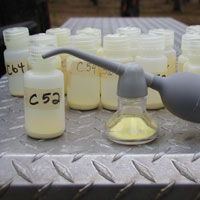
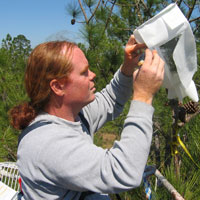
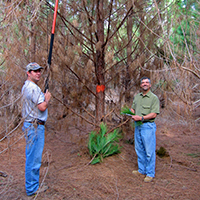
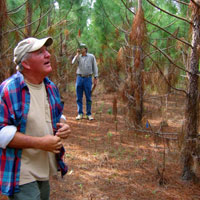
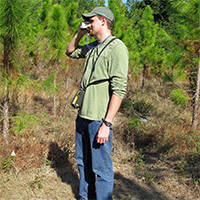
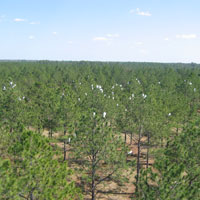
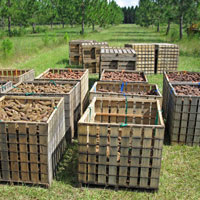
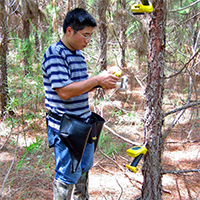
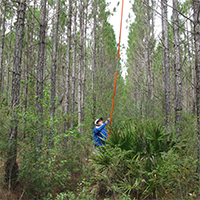
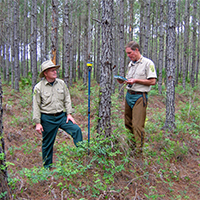
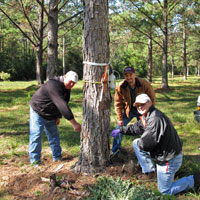
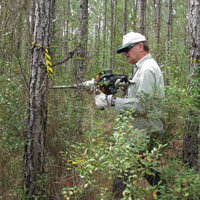
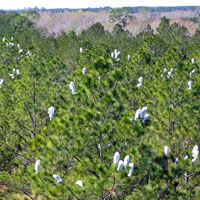
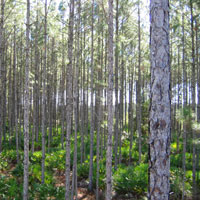
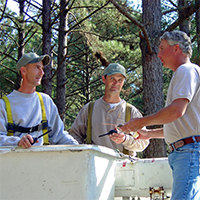
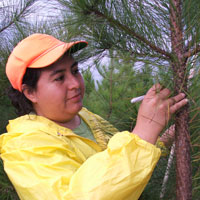
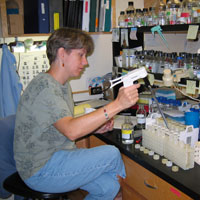
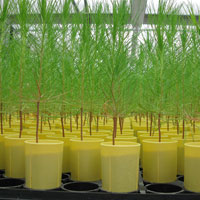




 Dudley Huber
Dudley Huber


